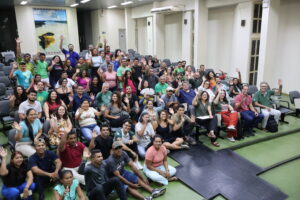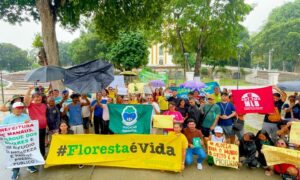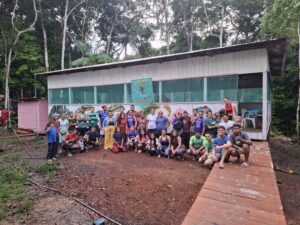The National Council of Extractivist Populations promotes debates among traditional communities from all over Brazil in defense of the forest and climate
By Maria Cunha
Translated by Laiane Lessa
Chico Mendes was a brazilian union leader and environmental activist who dedicated his life to advocate for the rights of extractivist populations and the preservation of the diverse biomes of Brazil. His legacy is recognized as a milestone in the fight for social justice and the environment.
Born into a family of rubber tappers in the state of Acre, Chico Mendes knew from an early age the challenges faced by extractivist communities. He witnessed the predatory exploitation of natural resources, the progress of deforestation, the threat to the culture and the way of life of these communities. Chico Mendes stood out as an union leader and founded the Xapuri Rural Workers Union and later the Central Workers Union in Acre. He advocated for the collective organization of rubber tappers and fought for better working conditions, access to land, and valorization of extractivist products.
However, Chico Mendes went beyond the struggles of union workers and became a tireless defender of the environment. He realized that preserving the biomes, such as the Amazon, was fundamental for the survival of extractivist communities and for the overall planet’s well-being.
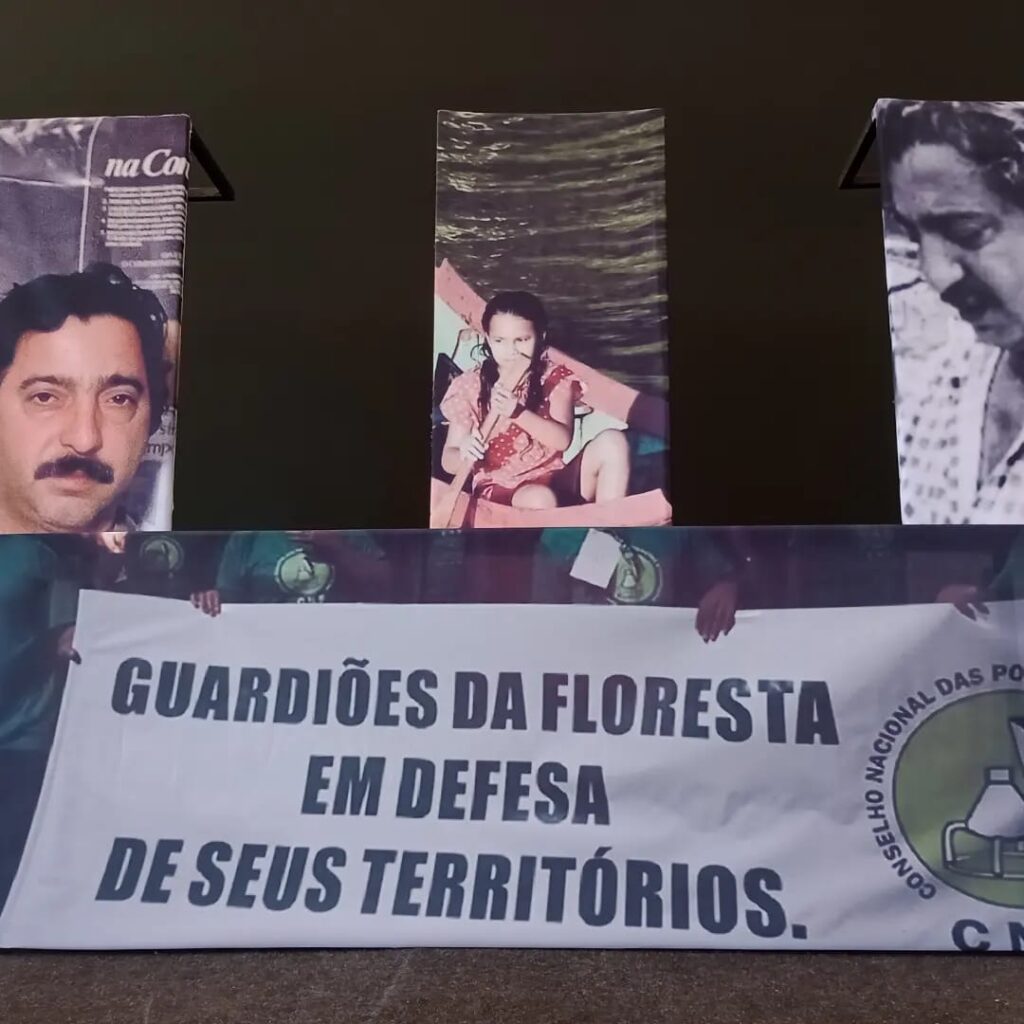
Chico Mendes was a pioneer in proposing to reconcile environmental protection with sustainable extractivist activity. He advocated for the creation of extractivist reserves, areas where traditional communities could continue their natural resource management practices in a sustainable way, guaranteeing their livelihoods and preserving biodiversity. His fight not only brought him international notoriety, but also attracted powerful enemies. Unfortunately, Chico Mendes paid with his life for his courage and determination. He was assassinated in 1988, leaving behind a legacy of inspiration and commitment to the causes of extractivist populations and environmental preservation.
Chico Mendes’ legacy is immense. His fight and sacrifice brought visibility to extractivist communities and to the importance of conserving Brazilian biomes. His work has inspired countless people and organizations to continue the battle for social and environmental justice.
It is important to remember and value the legacy of Chico Mendes and to continue his fight, ensuring that extractivist populations have their rights. The National Council of Extractivist Populations (CNS) is an organization that collaborates with the struggle of traditional communities and helps to keep Chico Mendes’ legacy alive in each territory, within each biome. It also encourages the participation of women and young people to be active within the movements and embrace the fight of their communities and territories, a protagonism that aims to bring greater representation in the fight for their rights and territorial conquests.
The National Congress of Extractivist Populations, held in Brasilia from November 13ᵗʰ to 17ᵗʰ, was a highly significant event for discussing and promoting the rights and interests of extractivist communities in Brazil, also in the context of defending the forest and the climate.

Extractivist populations are traditional groups that depend on the sustainable exploitation of natural resources for their livelihoods, such as fishing, harvesting fruits and medicinal plants, and oil extraction , among other activities. These communities possess profound knowledge of local biodiversity and play a fundamental role in preserving the environment.
Climate change has impacted the development of these territories, completely altering the daily lives of those who reside and work in the forest and on the water. Understanding the role of these territories in this context and how they can contribute to this crucial agenda on climate change has promoted important reflections for discussion among extractivist populations.
The congress brought together representatives from various extractivist communities, as well as government authorities, experts and non-governmental organizations. The main goals of the event were to promote the exchange of experiences, strengthen the organization of these communities, and discuss public policies that guarantee their rights and improve their living conditions.
During the congress, various lectures, panels, and debates were held on topics such as the role of sustainable use territories in combating the climate crisis, the consolidation of sustainable use territories, land regularization, and infrastructure for extractivist reserves. Additionally, discussions covered socio-productive management and sustainability lines, alongside financing options for the socio-biodiversity economy, and the management and social organization of territories.
The National Seminar on Women and Climate Justice, organized by the Ministry of Women in partnership with the National Council of Extractivist Populations and other collaborators, brought together women from all biomes. It was a crucial moment for exchange and dialogue, laying the groundwork for proposals that enhance women’s participation in the context of climate agendas. Considering that women are the most affected by these changes, the seminar also provided an overview of how women perceive themselves and advocate within their territories for opportunities, recognition, and appreciation.
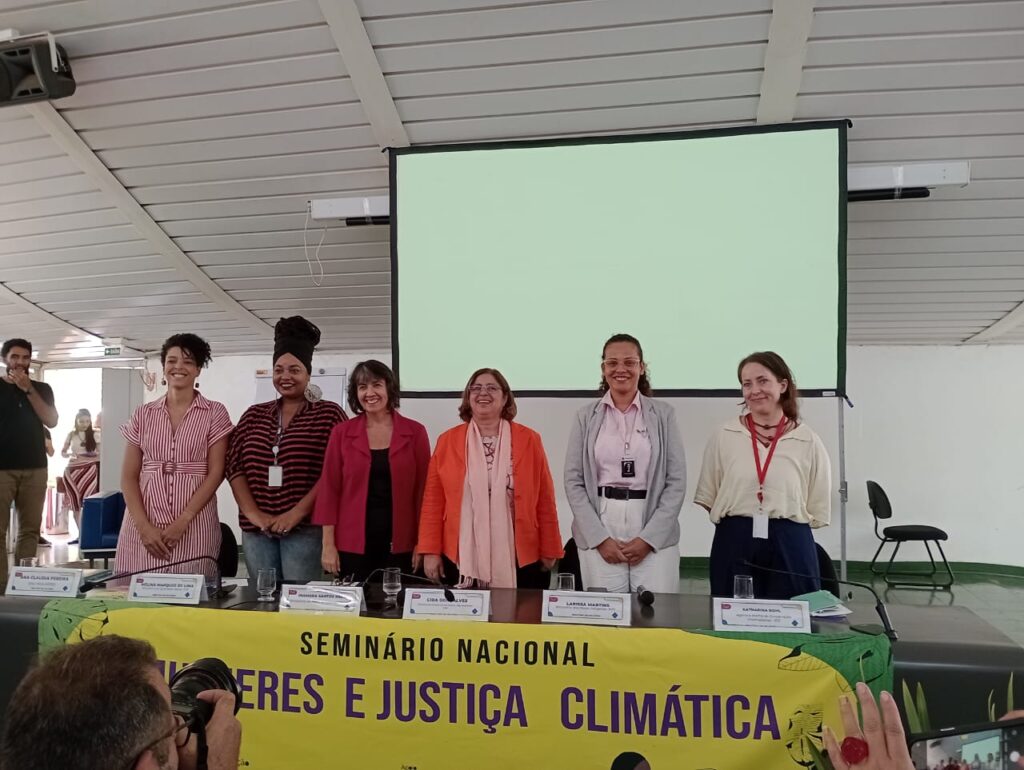
Through the exchange of conversations, it was evident how much the territorial realities coincide and how women’s struggle is part of everyday traditions and challenges. However, social empowerment has shaped a different kind of knowledge and strength, and women are increasingly attentive and willing to write new narratives where they are the main protagonists. The seminar led to the creation of a manifesto produced with the demands of each territory presented by women in working groups, representing the various biomes of Brazil.
During the congress, another important discussion revolved around the significance of recognizing and valuing the traditional knowledge of these communities. Often underestimated or ignored, this knowledge is fundamental for environmental preservation and sustainable development, as well as within the context of the climate agenda. A perspective that necessarily needs to be taken into consideration according to the viewpoint of those who live in their territories, within each Brazilian biome.
The congress also served as a platform for extractivist communities to articulate their demands and claims. Among the primary requests are the access to specific public policies, such as credit programs, technical assistance, and training, as well as an increased participation in decisions that impact their lives and territories.

At the end of the event, proposals and recommendations were developed, which will be forwarded to the government agencies responsible for formulating policies aimed at extractivist populations.
The National Congress of Extractivist Populations was a unique opportunity to strengthen the fight of these communities, increase their visibility, and ensure that their voices are heard. It is expected that the discussions and debates held during the event will contribute to the implementation of fairer and more sustainable policies for these populations, thus preserving the country’s natural and cultural wealth.
At this congress, the National Council of Extractivist Populations also elected its new board of directors, with women, young people, and extractivists in general being its representatives – a group of leaders who carry the greatest legacy of representing traditional populations in the fight for their rights and recognition in their territories and beyond.
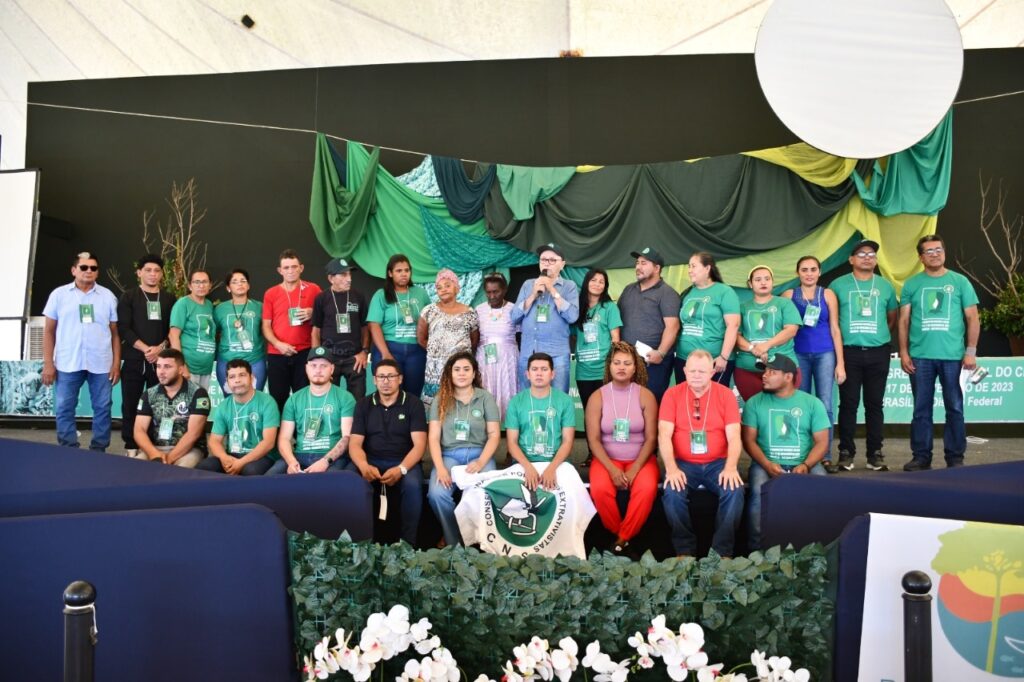
Today, the recognition of the rights of extractivist populations and the protection of biomes are central to public policies and environmental activism. The example of Chico Mendes continues to inspire actions and movements in defense of the Amazon, the Cerrado biome, the Atlantic Forest, and many other biomes, as well as the traditional communities that depend on these ecosystems for their survival.

